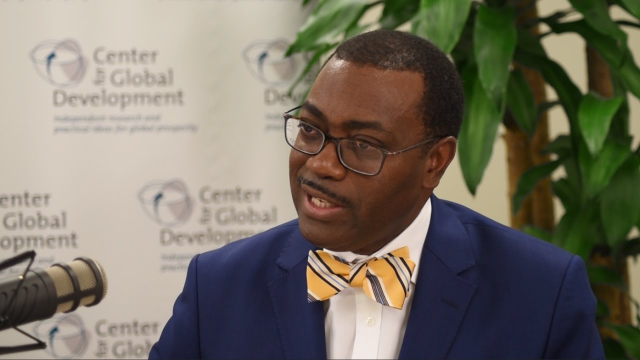The African Development Bank (AfDB) has approved funds to address infrastructure development challenges in Egypt, Burundi and Madagascar.

While AfDB approved €109 million to transform sewage coverage in Upper Egypt rural areas, the bank’s Sustainable Energy Fund for Africa (SEFA) grants $1 million to support innovative solar-hydro hybrid project in Burundi, and Madagascar got a guarantee of $100 million for hydro-power project.
The Egyptian facility will be used for the development of sewage disposal and wastewater treatment plants for rural areas in Luxor Governorate in Egypt’s Upper Nile region.
The Integrated Rural Sanitation in Upper Egypt – Luxor (IRSUE-Luxor) project is set to boost sewage coverage in the region from six percent to 55 percent, improving the quality of life of citizens, including women and children, who are most affected by poor sanitation.
The facility consists of a €108 million loan from the AfDB, and a grant of €1 million from the Rural Water Supply and Sanitation Initiative (RWSSI) – an Africa-wide initiative hosted by the bank.
“The bank’s support under the Integrated Rural Sanitation in Upper Egypt – Luxor will develop more than 8 sewer networks and pump stations and two wastewater treatment plants located in the desert areas of El Tod, and El Keman El Matana,” said Mohamed El Azizi, the bank’s Director General for the North Africa region.
The network will serve approximately 22,000 households (161,929 inhabitants). The households in satellite villages that will not be covered by the sewer network will benefit from an improved onsite sanitation service, which involves sludge treatment in the wastewater treatment plants.
IRSUE-Luxor contributes to the National Rural Sanitation Programme (NRSP) established by the Ministry of Housing and Urban Communities and aims at expanding access to sanitation services from 34% currently (national wide) up to 60% in 2030.
The $990,000 Burundi grant will support the preparation of a 9-MW solar-hydro hybrid project in the East African nation. The project consists of two plants, each featuring a solar and a hydro component as well as a local distribution network and interconnection to the national power grid. The innovative hybrid design is anticipated to regularize the power output during dry and wet season and mitigate power shortfalls caused by climate change.
The SEFA grant, which is instrumental in assuring project bankability, will support technical feasibility, environmental and social impact assessment and financial advisory for the project.
Upon completion, the project will also electrify about 20,000 households in surrounding communities through a local distribution network. By enhancing access to electricity, the project will also generate socio-economic benefits especially for women and small and medium-sized enterprises (SME).
“In addition to the energy access and socio-economic benefits, with the strong government support, this innovative project will pave the way for increased private sector participation in renewable energy to diversify the energy mix in Burundi,” said Wale Shonibare, the bank’s Acting Vice-President for Power, Energy, Climate, and Green Growth.
Welcoming SEFA’s support, Daniel Brose, President and CEO of Songa Energy Burundi, said, “We are privileged to have secured this funding which is instrumental to the further development of our portfolio. This funding will bring us and the people of Burundi one step closer to our collective goal of widespread rural electrification in a country that has one of the lowest rates of access to electricity in the world.”
A Partial Risk Guarantee (PRG) of $100 million granted Madagascar will support the Sahofika hydro-power project in the Indian Ocean island nation, which will add 205 MW of renewable energy generation capacity to the national grid, benefitting over two million people.
AfDB’s support will include risk mitigation to the project developers and the debt providers by supporting the payment obligations of JIRAMA, the state-owned off-taker.
The Sahofika hydro power project, located on the Onive River, 100 km southeast of the capital Antananarivo, will involve the design, construction and operation of a 205 MW hydroelectric power plant, the construction of a 110 km transmission line to the site, and construction of camp facilities and 112 km of access roads.
Upon completion, the project will generate 1,570 GWh of renewable power annually. The project will enable Madagascar to displace up to 90% of thermal energy generation, to unlock its great hydro-power potential, and to expand its energy mix to more renewable sources. It will also contribute to the reduction of average end-user tariffs, and of greenhouse gas emissions amounting to 32,469 kt of CO2 over the 35-year concession period.
Noting the critical importance of the
project to Madagascar, Shonibare said, “The bank’s support to the national
utility, JIRAMA, through the PRG provides much needed credit enhancement as
JIRAMA continues to build its track-record as a bankable electricity off-taker
that will in-turn mobilize investments into Madagascar’s energy sector. This
will enable the country to achieve its strategic goals in terms of increased
energy access, a more diversified energy mix and least cost generation”.
“The project, which supports Madagascar’s ongoing reforms in the energy sector,
is expected to reduce the share of thermal power generation in the country’s
energy mix and significantly reduce electricity tariffs. The displacement of
thermal power generation will also enable JIRAMA to considerably reduce its
fuel purchase and decrease subsidies from the government to sustain its
operations,” said Aida Ngom, the bank’s acting Director for Energy Financial
Solutions, Policy and Regulation.
The Sahofika Project is aligned with AfDB’s High 5 Priority to “Light Up and
Power Africa”, the bank’s focus on energy access, and strengthening
infrastructure for inclusive growth, as well as Madagascar’s Nationally
Determined Contributions (NDCs) and the country’s Emergence Plan, which
prioritises boosting the power sector and increasing electricity access.
